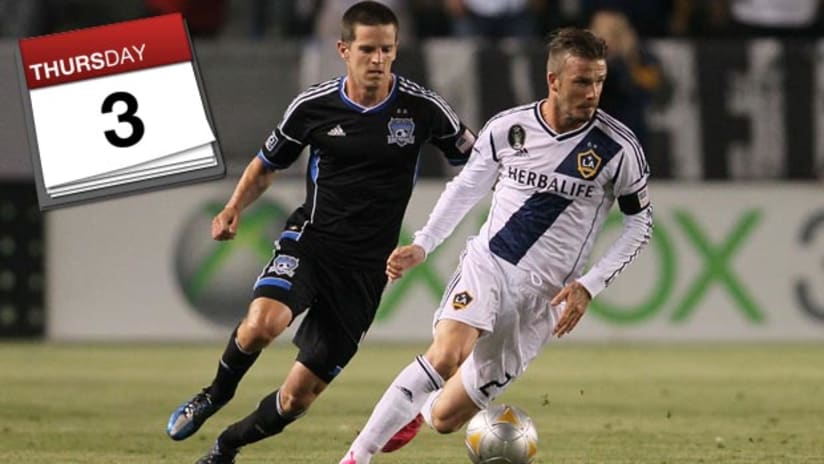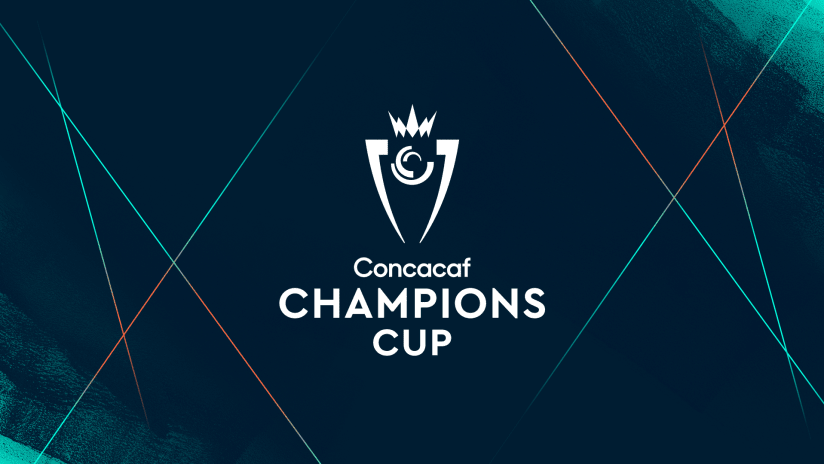On Wednesday night, one of the league’s most storied rivalries captured the attention of MLS once more. The San Jose Earthquakes picked up their first victory at the Home Depot Center since October 15, 2005, on the back of an incredible comeback, coming from 2-0 down to win 3-2 in the final 14 minutes of the game.
It was a welcome return to national attention for a rivalry that had lost much of its luster since the Earthquakes relocated to Houston at the end of 2005, only to be re-formed again for the 2008 season.
Though the Earthquakes can boast that the series has been fairly even since 2008 – Wednesday’s win brought the series to a dead even 4-4-3 in that period – the meetings between the two sides have lacked the luster (if not the passion) of the early 2000’s, largely thanks to the recent disparity in success between the two teams.
That may well have all changed with Wednesday’s memorable encounter. The win catapulted the Quakes to the best record in MLS, and though it also condemned the Galaxy to the Western Conference cellar, the combination of the anticipation of two more games between the rivals this season and the Quakes’ re-emergence as one of the best sides in MLS is certainly more than enough to serve notice that this classic rivalry may once again be on the rise.
Throw in the added intrigue of Alan Gordon punishing his former team, much like Landon Donovan did to the Quakes after keying two MLS Cup wins for them, and there is more than enough kindling to re-light the flame between these two teams.
With that in mind, we take a look back at the three games shaped the Clasico during its heyday, from 2001-05.
October 21, 2001: San Jose Earthquakes 2, LA Galaxy 1 (OT) – MLS Cup
WATCH: Donovan becomes youngest to score in MLS Cup
In many ways, the writing was already on the wall. After having posted a 5-15 record against the Galaxy in their first five MLS seasons, the Earthquakes managed to sweep the Galaxy in a regular-season series for the first time ever.
Still, few gave the Earthquakes – who had never won a playoff series before – much of a chance against MLS Cup regulars (though not yet winners) LA, even after they scored 11 goals in five games to blow past the Columbus Crew and top-seeded Miami Fusion in the first two rounds of the playoffs.
Perfectly fitting the narrative of the rivalry, it was Landon Donovan that equalized for San Jose that after Luis Hernández had put the Galaxy up in the first half. Donovan’s goal swung momentum San Jose’s way, and although it took until sudden death, Dwayne De Rosario’s goal gave the Earthquakes their first MLS Cup.
Not only did the win deny the Galaxy their third chance at a first MLS Cup, it set the tone for the epic clashes between the two teams for the following four years, in which both teams would make every edition of the playoffs.
It left the Galaxy with a chip on their shoulder and the San Jose fans something to cheer about after five lackluster MLS seasons, not to mention the depth it added to the classic Northern California-Southern California sports rivalry.
November 9, 2003: San Jose Earthquakes 5, Los Angeles 2 (OT) – Western Conference Semifinals, second leg
Consider it the defining game of the California Clasico's heyday.
The Galaxy, having entered the playoffs with a losing record, were paired up against the West-topping Quakes, but managed to spring a surprise in the first leg of the conference semifinals in LA, grabbing a 2-0 win behind goals from Sasha Victorine and Carlos Ruiz.
When Ruiz and Peter Vagenas then put the Galaxy 2-0 up in the first 13 minutes of the return leg at Spartan Stadium, all the signs pointed to another early playoff exit for the the Quakes.
Incredibly, though, the Earthquakes fought back. Jeff Agoos and Donovan put two goals on the board in the first half, and though Jamil Walker added another in the 50th minute, it looked as though the defending champion Galaxy would have a shot at a repeat MLS Cup.
Chris Roner had other ideas, though. Having entered the game as a substitute, he scored with one of his first touches on the ball in the 90th minute to force extra time. From there, Brazilian striker Rodrigo Faria, who had not scored a single goal in 2003, managed to net the winner in sudden death, capping off one of the most improbable comebacks in playoff history.
It proved to be yet another painful thorn in the Galaxy’s side, especially since the Earthquakes would go on to win MLS Cup and restore their supremacy in terms of the trophy count. However, the Galaxy had the last laugh, and set the tone for the rest of the decade.
October 23, 2005: Los Angeles 3, San Jose 1 – Western Conference Semifinals, first leg
Consider it the Galaxy’s revenge. Though LA have traditionally dominated the regular-season series between the two teams, they found themselves stymied at every corner in the postseason, save for the 1996 playoffs, and going into the series that didn’t seem like it was about to change.
The Earthquakes had taken the season series three games to one on their way to the 2005 Supporters' Shield, and had eight days prior beaten the Galaxy 3-1 at the Home Depot Center, keyed by Dwayne De Rosario’s Goal of the Year-winning strike.
However, it was the Galaxy who had the last laugh. Herculez Gomez scored early and of course Donovan, who had tormented his hometown club in the playoffs plenty of times before, added a pair of goals against his former club, including an 87th-minute strike, to ensure that this time, there would be no comeback from the Quakes.
To add insult to injury, the Galaxy went on to win MLS Cup 2005 while the Earthquakes finished the year by packing up and moving to Houston.
It was a move Frank Yallop – Earthquakes coach since 2008 and from 2001-03, and Galaxy coach from 2006-07 – claimed before Wednesday’s game diminished the rivalry. If last night’s game was any indication though, we could be adding a few more games to this list in the near future.













